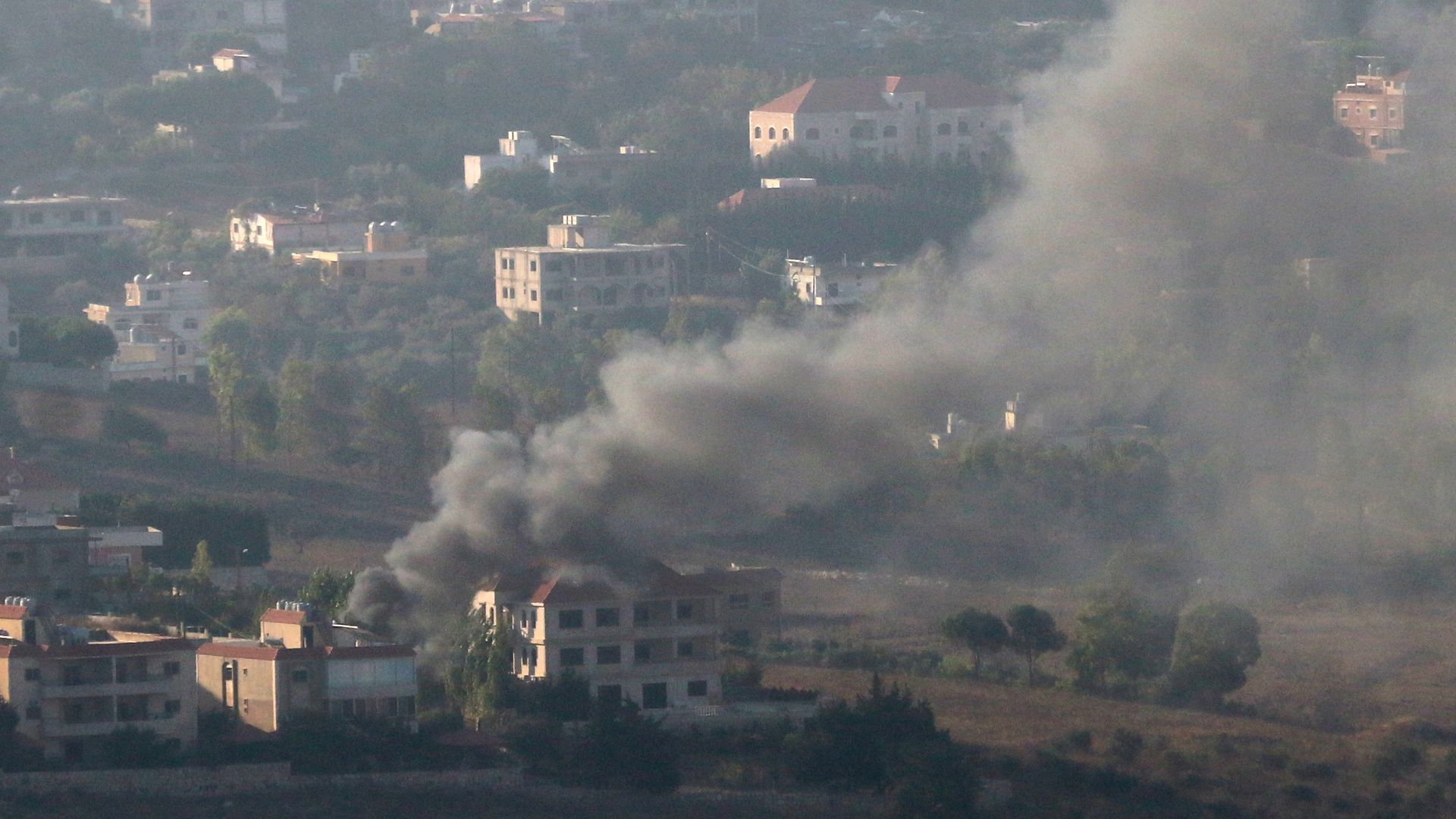Israel has launched pre-emptive airstrikes in southern Lebanon against Hezbollah, with the militant group saying it has responded by firing drones and hundreds of rockets.
Warning sirens sounded in northern Israel and explosions were heard as the military’s Iron Dome aerial defence system shot down missiles from southern Lebanon.
Flights to and from Tel Aviv’s Ben Gurion airport were also suspended.
In a statement, the Israel Defence Forces (IDF) accused Hezbollah of “preparing to file missiles and rockets toward Israeli territory”.
Live coverage: Follow more from the Middle East
“In a self-defence act to remove these threats, the IDF is striking terror targets in Lebanon,” Israeli military spokesman Rear Admiral Daniel Hagari said.
Please use Chrome browser for a more accessible video player
Hezbollah has issued a statement saying it has completed the “first phase” of its attack, after launching 320 Katyusha rockets and hitting 11 Israeli military sites.
Hezbollah and Iran ‘poised to attack Israel this week’ – as region on brink of dangerous escalation
What’s Iran up to?
‘God will take revenge on Israel, US and Britain’: Inside Beirut building damaged in airstrike that killed Hezbollah military leader
There has been no independent confirmation about the claims, nor whether any damage has been caused.
The Iran-backed fighting group – designated a terrorist organisation by several countries including the UK – said its attacks were in retaliation for the killing of a top commander last month.
Fuad Shukr died in a strike in Beirut’s southern suburbs.
The Israeli Prime Minister, Benjamin Netanyahu, previously described Shukr as “one of the most wanted terrorists in the world”.
Meanwhile, the Lebanese National News Agency described “enemy warplanes” causing “severe damage to property, crops, and infrastructure, especially the electricity and water networks”.
The escalation was predicted according to an assessment of Israeli intelligence by the country’s best-connected security correspondents.
Middle East correspondent
Israel had been expecting a response to the killing of senior Hezbollah commander Fuad Shukr and its military has been on high alert for the last three and a half weeks.
To have carried out pre-emptive strikes on a wave of Hezbollah missile launchers, reportedly primed to fire at 5am, suggests extremely good intelligence that might have prevented considerable damage to Israel.
Hezbollah has said it targeted Israeli military bases and that the first wave of its response is over.
When the next wave comes is unclear, but this is an extremely dangerous moment for the region. Keeping Israel guessing as to when the next attacks will come, is all part of the psychological warfare.
The US, which has been kept closely informed of developments, has already positioned its military hardware around the region in anticipation of this moment.
With high-level delegations due to meet in Cairo later today to discuss a possible Gaza ceasefire, Washington will be urging Israel not to retaliate hard just now, in fear the situation will spiral out of control and in the hope progress can be made at those talks.
Few though, believe a ceasefire in Gaza is close.
But if Hezbollah is expected to launch further major assaults on Israel, there will be loud voices within the Israeli government and security establishment urging prime minister Benjamin Netanyahu to take offensive action now, rather than waiting to see what comes next.
Mr Netanyahu held a meeting early on Sunday with members of his cabinet about the attacks.
US defence secretary Lloyd Austin has also spoken with his Israeli counterpart Yoav Gallant.
The Pentagon said he “reaffirmed the United States’ ironclad commitment to Israel’s defence against any attacks by Iran and its regional partners and proxies”.
Sunday’s attack came as Egypt hosts a new round of talks aimed at ending Israel’s war against Hamas, now in its 11th month.
Hezbollah has said it will halt the fighting if there is a ceasefire.
This breaking news story is being updated and more details will be published shortly.
Please refresh the page for the fullest version.
You can receive breaking news alerts on a smartphone or tablet via the Sky News app. You can also follow @SkyNews on X or subscribe to our YouTube channel to keep up with the latest news.






